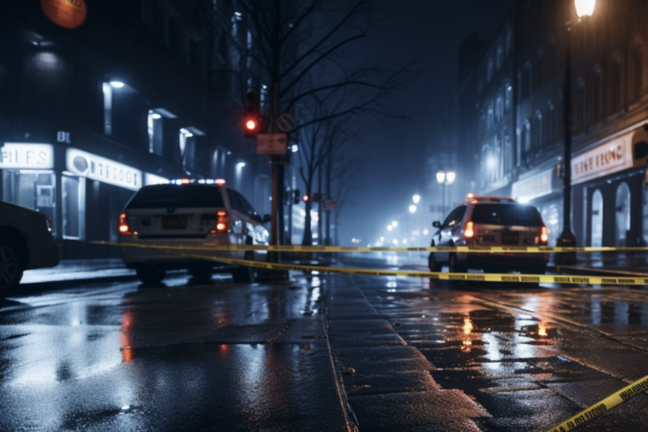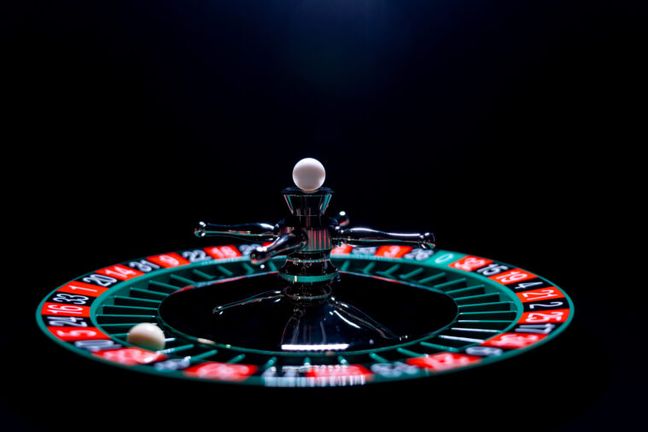After over four and a half years of litigation, a New Jersey judge dismissed a claim against a nightclub after a Rutgers University student was fatally struck by a car, reasoning that, while the patron was visibly intoxicated while at the bar, it had not served him any alcohol.
The decision arises from circumstances that are, in a word, tragic. On September 28, 2019, Cory Aufiero, a 19-year-old sophomore at Rutgers University, went to the now-defunct Perle Night Club & Lounge in downtown New Brunswick, New Jersey for a private “date night” event sponsored by a local sorority. Although Aufiero drank alcohol at a “pregame” party, also hosted by the sorority, he was not served any alcohol at Perle. It was undisputed, however, that he was visibly intoxicated while at Perle. Approximately twenty minutes after leaving the bar, Aufiero stumbled into the street and was struck and killed by a car using the Uber platform. An investigation by New Brunswick police determined the driver was under the influence of marijuana at the time; the driver was ultimately charged with vehicular homicide and driving with a suspended license.
Aufiero’s parents brought suit against a variety of defendants, including Perle, the local and national sorority that hosted the events, the driver, and Uber. As against Perle, the plaintiffs pursued claims relating to the service of alcohol, as well as claims relating to alleged negligent hiring, supervision, and training of its employees and negligent supervision of Aufiero.
In New Jersey, the New Jersey Licensed Alcoholic Beverage Server Fair Liability Act, also known as the Dram Shop Act, is “the exclusive civil remedy for personal injury or property damage resulting from the negligent service of alcoholic beverage by a licensed alcoholic beverage server.”[1] The New Jersey Legislature enacted the Dram Shop Act to define the limits of civil liability of alcoholic beverage servers in response to the growing difficulty faced by servers in obtaining affordable insurance coverage, due to the unpredictability of the incidence of liability.[2] Under the Act, liability attaches to an establishment “only” where alcohol is served to: (1) “a visibly intoxicated person”; or (2) “a minor, under circumstances where the server knew or reasonably should have known, that the person served was a minor.”[3]
After the conclusion of discovery, Perle moved for summary judgment, arguing the Dram Shop Act was not implicated because the nightclub did not serve the decedent alcohol. Further, because the Act provides the “exclusive remedy” against a licensed alcoholic beverage server absent premises liability, any claims of general negligence and negligent supervision/security were barred. While the plaintiffs conceded they could not pursue any claims against Perle relating to the service of alcohol, they asserted two workaround theories of liability. First, they argued because the Act’s exclusivity provision refers to the “service of alcoholic beverages,” anything that is not “service” may trigger liability. Second, the plaintiffs argued Perle “voluntarily assumed” a duty to Aufiero to ensure his safe passage home.
While Judge Gregory L. Acquaviva found the plaintiffs’ theories “creative,” he ultimately deemed them to be “imaginative causes of action” that were “not consistent with the language used in the Dram Shop Act or the legislative intent underlying the Act.” “To allow this matter to go to a jury would be to return to the pre-Dram Shop Act era where licensed alcoholic beverage servers, insurers, and injured parties were subject to the vagaries of an unpredictable patchwork of common law liability theories,” he wrote in his 17-page decision.
Takeaway
Cory Aufiero’s story is certainly heartbreaking, and it has many of the hallmarks of an eventual Nuclear Verdict®. Even where the bounds of liability appear clear, the plaintiffs’ bar continues to develop creative workaround theories of liability, like those advanced by the plaintiffs here. New Jersey’s Dram Shop Act still allows an alcoholic beverage server to be liable for typical premises liability issues, such as slip and fall injuries caused by a failure to timely clean a spill, or a defective handrail. But where service (or non-service) of alcohol is at issue, the exclusivity provision limits a licensed alcohol beverage server’s liability to only those instances where a visibly intoxicated individual or minor were served alcohol. Nevertheless, any defense of an alcoholic beverage server must be prepared to defend against inventive causes of action.
Keep Reading
More by this author
Sources
[1] N.J.S.A. 2A:22A-4 (emphasis added).
[2] Fisch v. Bellshot, 135 N.J. 374, 382 (1994).
[3] Fisch v. Bellshot, 135 N.J. 374, 383 (1994).

 Author: Keith Bostwick
Author: Keith Bostwick
 Editor: Grace Shuman
Editor: Grace Shuman
 Cannabis Workers Allege Quota to Trim 4 Pounds a Day Violates the California Labor Code
Cannabis Workers Allege Quota to Trim 4 Pounds a Day Violates the California Labor Code
 The Ninth Circuit Reminds Us: Every Word Matters
The Ninth Circuit Reminds Us: Every Word Matters
 NO WAY, PRO SE! The Consequences of Abusing the Judicial System as a Pro Se Litigant in Colorado
NO WAY, PRO SE! The Consequences of Abusing the Judicial System as a Pro Se Litigant in Colorado
 Victim of Financial Mismanagement or Unlawful Retaliation? New Jersey City University Program Founder Claims School Retaliated After Reporting Alleged Sexual Harassment
Victim of Financial Mismanagement or Unlawful Retaliation? New Jersey City University Program Founder Claims School Retaliated After Reporting Alleged Sexual Harassment
 “Real Housewives” Gets a Reality Check
“Real Housewives” Gets a Reality Check
 Missing a Chapter: Insufficiency of Expert Deposition Testimony in Medical Malpractice Litigation
Missing a Chapter: Insufficiency of Expert Deposition Testimony in Medical Malpractice Litigation
 Crash Course: Why Summary Judgment Misses the Mark in Illinois Multi-Cause Limousine Crash Collision
Crash Course: Why Summary Judgment Misses the Mark in Illinois Multi-Cause Limousine Crash Collision
 Bitter Truths: Lead, Cadmium, and Defective Pleadings in California Chocolate Class Action
Bitter Truths: Lead, Cadmium, and Defective Pleadings in California Chocolate Class Action
 The Law of Unintended Consequences: Including Insurance Brokers in Litigation Strategy Communication May Waive the Attorney-Client Privilege
The Law of Unintended Consequences: Including Insurance Brokers in Litigation Strategy Communication May Waive the Attorney-Client Privilege
 New Jersey Supreme Court Takes Up Casino’s COVID-19 Coverage Fight
New Jersey Supreme Court Takes Up Casino’s COVID-19 Coverage Fight